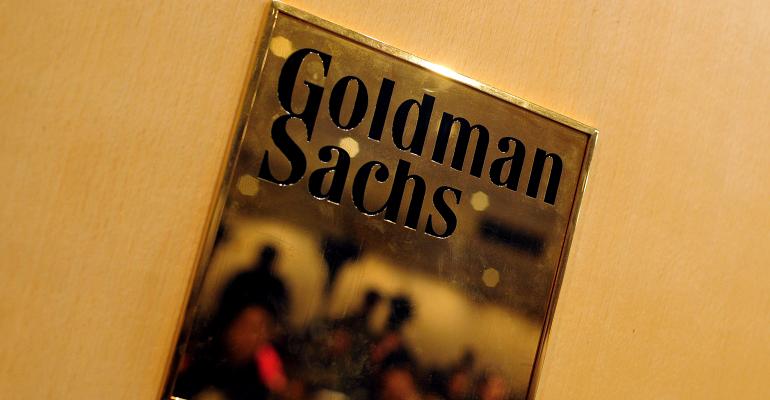Goldman Sachs reported Wednesday that its rapid expansion into the retail wealth management space with the 2019 acquisition of Joe Duran’s United Capital, recently rebranded as Goldman Sachs Personal Financial Management, is paying off.
Revenues at the wealth unit of the Wall Street firm, which includes Goldman Sachs Personal Financial Management, the private bank, the RIA Ayco, and the consumer credit card business Marcus, rose 7% year over year to $1.1 billion, while assets under management rose by $49 billion sequentially to $558 billion. Management fees, the bulk of which come from Personal Financial Management, which has 240 advisors, rose 13% year over year to $938 million, despite dipping slightly from the first quarter.
On the company’s earnings call, CEO David Solomon said that 400 client referrals were made during the quarter between Personal Financial Management and the company’s flagship wealth management business, and that could result in $1.5 billion in new assets.
However, he acknowledged that “establishing new wealth management relationships in the current environment with only virtual meetings has been challenging; this will accelerate among more normal circumstances.”
Goldman Sachs announced in May it was purchasing Folio Financial for an undisclosed sum, a deal that will bring Folio’s clearing and custody business under Goldman’s control. On the earnings call, CFO Stephen Scherr said the acquisition will allow Personal Financial Management, aimed at high-net-worth clients, and Goldman’s private wealth business, serving ultra-high-net-worth clients, to custody in-house. It will also allow Goldman to serve as a third-party custodian for independents.
“The acquisition is clearly aligned with the strategy begun under United Capital and will allow for the provision of third-party custody,” said Scherr.
Folio currently has $11 billion in custodied AUM.
Goldman’s wealth unit failed to produce a profit during the second quarter, reporting negative net income of $131 million, attributed to $1.2 billion in operating expenses, costs largely associated with the United Capital acquisition, the firm said.
Unlike Wells Fargo, which gave a dire outlook for the year in its second quarter earnings on Tuesday, Solomon said that Goldman’s economic outlook improved between the first and second quarters, as its estimate for U.S. GDP contraction for 2020 fell to -4.6% from -6.2% in the first quarter.
Overall, Goldman reported net income of $2.42 billion, or $6.26 per share, beating consensus expectations by $2.25, although this was driven overwhelmingly by investment banking. In midday trading, Goldman shares rose almost 1% to over $215 per share.
Mike Mayo, senior bank analyst at Wells Fargo Securities, called Goldman a “best-in-class bet” among banking institutions and maintained his overweight rating on the firm.





